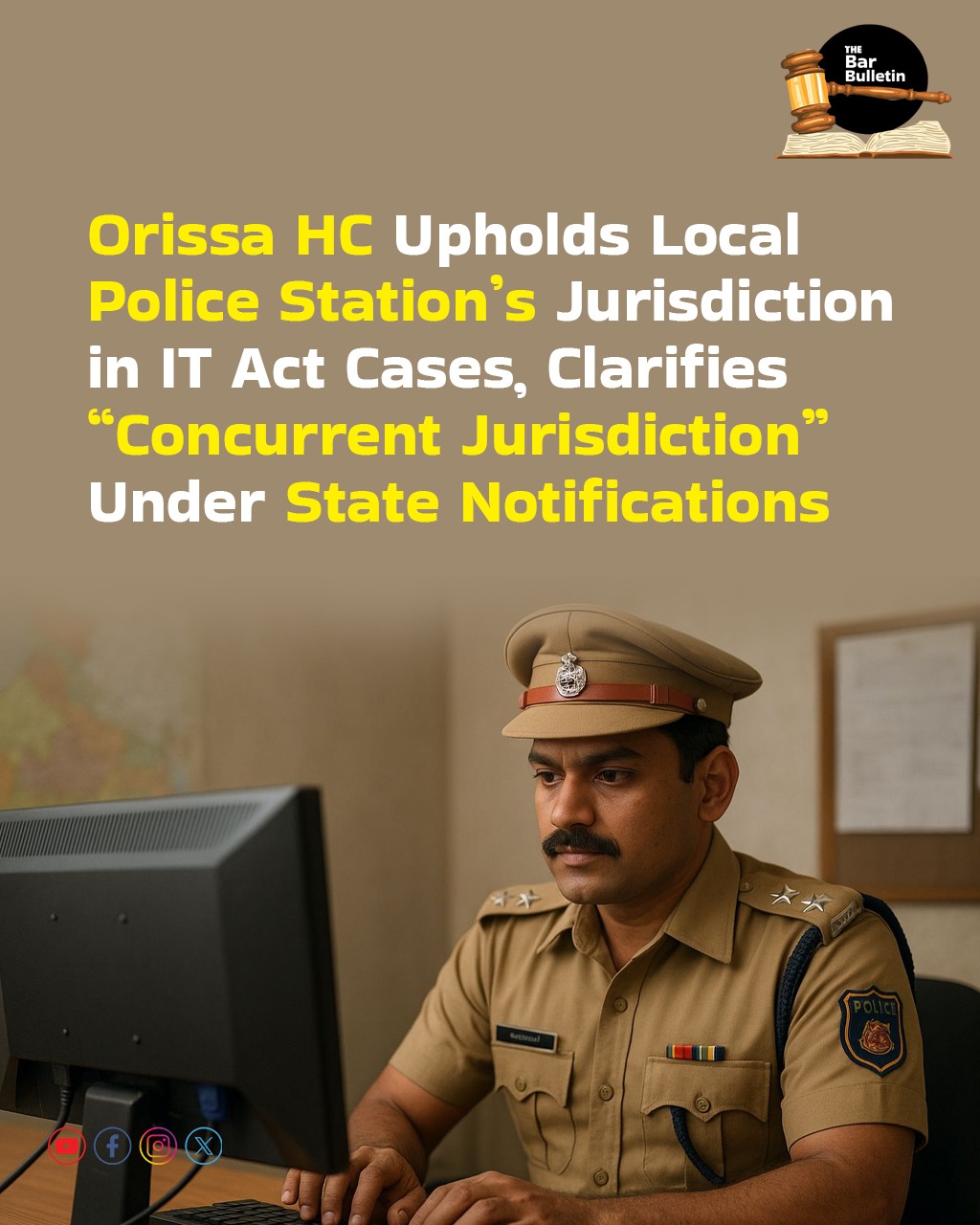The Orissa High Court at Cuttack dismissed a petition under Section 482 CrPC seeking quashing of the entire criminal proceedings in G.R. Case No. 309/2019, registered under Sections 465, 469, 500 IPC and Section 66(C) of the IT Act, pending before the Ld. S.D.J.M., Puri. Justice Chittaranjan Dash clarified that the “exclusive jurisdiction” granted to CID Cyber Crime Police Station must be read alongside the “concurrent jurisdiction all over the State” preserved in the same notification.
The matter originated from allegations that on February 21, 2019, the petitioner uploaded a forged electronic record on Facebook by editing the complainant’s photograph and posting defamatory and derogatory remarks with an intention to malign his reputation in public. It was alleged that the petitioner circulated the same to different groups and individuals, thereby tarnishing the social prestige of the informant. Based on the report, a case was registered under Sections 465, 469, 500 IPC read with Section 66(C) of the Information Technology Act, 2000, and after investigation, charge sheet was filed against the petitioner.
The petitioner contended that the entire proceeding was vitiated for want of jurisdiction, arguing that the offenses alleged pertained to cyber-crime, namely creation of forged electronic records, misuse of Facebook ID, uploading of morphed and defamatory images were the offences exclusively governed by the provisions of the Information Technology Act, 2000. It was submitted that in view of the Home Department Notification dated 22.09.2017, the Cyber Crime P.S. at CID, Crime Branch, Odisha had been vested with exclusive jurisdiction to investigate offenses under the I.T. Act throughout the State, and thus the local police station had no authority to register or investigate the case. Relying on Sharat Babu Digumarti v. Govt. of NCT of Delhi (2017) 2 SCC 18, it was argued that once an offense falls within the scope of special statute, the provisions of general law cannot be simultaneously invoked.
However, the respondents contended that the RTI reply from CID, CB, Odisha clarified that apart from designated Cyber Crime Police Stations, any other police station in the State was competent to register and investigate cases under the I.T. Act, provided the investigation was conducted by an officer not below the rank of Inspector. It was submitted that since the investigation was carried out by the Inspector-in-Charge of Kumbharpada P.S., the requirement under Section 78 of the I.T. Act was satisfied, and the RTI reply specifically affirmed that there was no harm in prosecution or investigation of the present case.
Justice Dash observed that Sections 78 and 80 of the Information Technology Act clearly indicated that the I.T. Act did not divest general police stations of competence to investigate; rather, it conditions such competence by prescribing the minimum rank of the Investigating Officer. The Court noted that the jurisdictional bar was not territorial in nature but functional, rooted in the rank of the officer investigating the case. It was further observed that much emphasis had been placed by the petitioner upon the words “exclusive jurisdiction,” but the same cannot be read in isolation. The Court found that in the present case, the record disclosed that the investigation was conducted by the then Inspector-in-Charge of Kumbharpada P.S., who was statutorily competent under Section 78. Therefore, the foundational requirement under the I.T. Act 78 stands satisfied. Accordingly, it was held that the jurisdictional challenge raised by the Petitioner cannot be sustained.
The Court held that this concurrent jurisdiction acts as a statutory safety-valve and ensures that the general mandate of Section 78 of the I.T. Act was not rendered null and void. It was observed that if the interpretation urged by the petitioner was accepted that only CID Cyber Crime P.S. could investigate all cyber offenses, it would render the words “along with concurrent jurisdiction all over the State” redundant and would create a monopoly that would be impractical. Hence it was concluded that the investigation by Kumbharpada P.S. was lawful and within jurisdiction and the objection regarding the lack of jurisdiction on the part of Kumbharpada P.S was held untenable.
Appearances:
Petitioner: Mr. Shivsankar Mohanty, Advocate
Respondent: Mr. S.K. Mishra, Senior Advocate for O.P. No.2; Ms. S. Mohanty, Addl. P.P. for the State



